PILAR CORRIAS | GERASIMOS FLORATOS & CHRISTINA QUARLES
hosting SOCIETE, Berlin | TRISHA BAGA
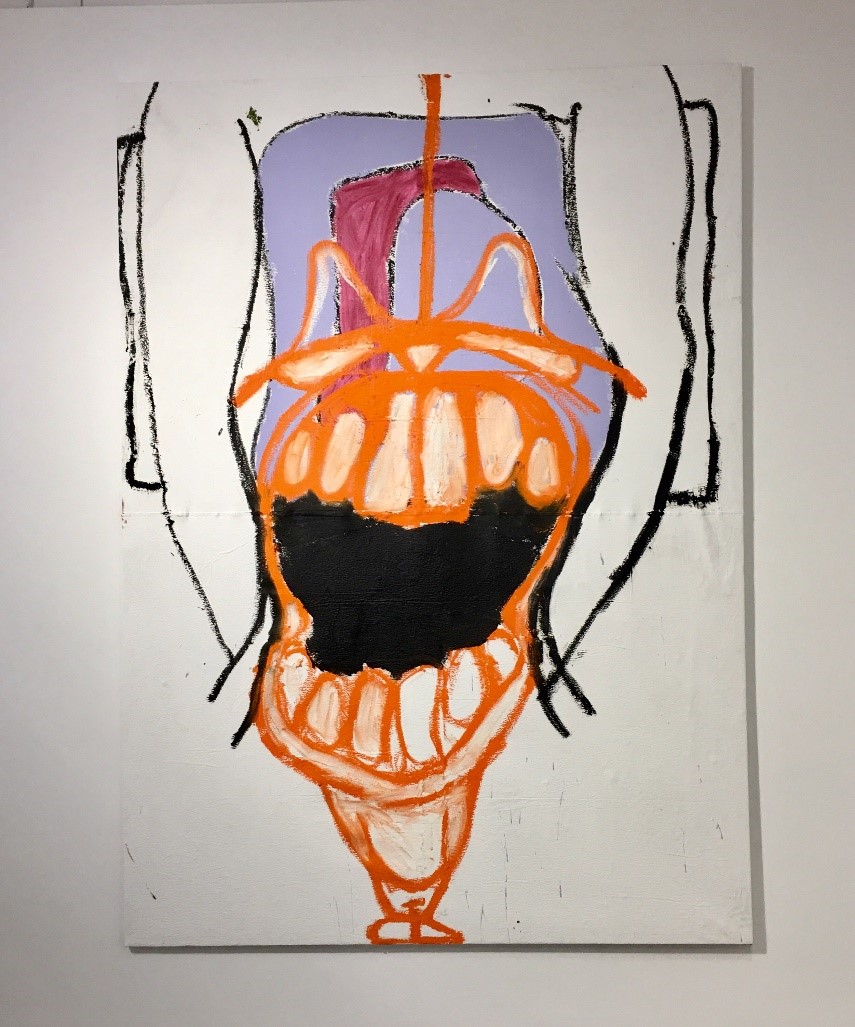
Gerasimos Floratos (New York, USA, 1986).
A first generation Greek American and native New Yorker, Gerasimos Floratos’ paintings and sculptures play with the idea of site specificity and the notion of what it means to be ‘rooted’ in a single place. His works employ pyscho-figurative bodies as mechanisms for charting space in many forms; psycho-geography of the globalised world, societies or microcosms built through commonalities of practice, and the internal space of the mind. For the artist, the slouchy alter egos present throughout his work operate as sites for exploring the relationship between the material and psychological bodies. The coded visual language present throughout his practice is partnered with a unique lexicon from which he draws titles for the works and exhibitions.
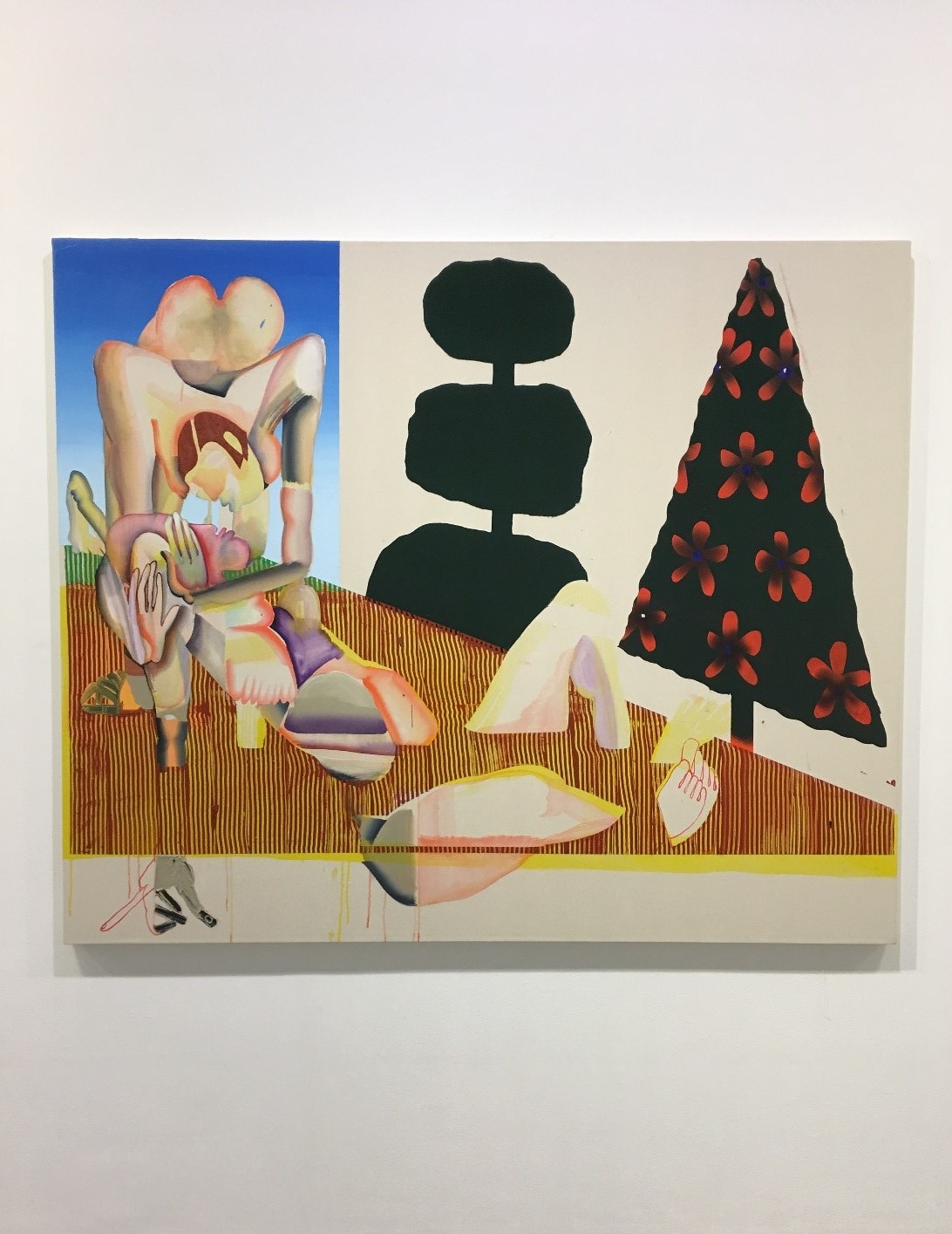
Christina Quarles (Chicago, USA, 1985) works and lives in Los Angeles.
Legibility teeters on the edge of lack and excess—when we lack information about a thing, it is vague. However, as information accumulates, the risk for contradiction increases and legibility tips into ambiguity. Taking inspiration from surrealism and metaphysics, as a queer, cis-woman who is black but often mistaken as white, Christina Quarles engages with the world from a position that is multiply situated. Her project is informed by her daily experience with ambiguity and seeks to dismantle assumptions of our fixed subjectivity through images that challenge the viewer to contend with the disorganized body in a state of excess.
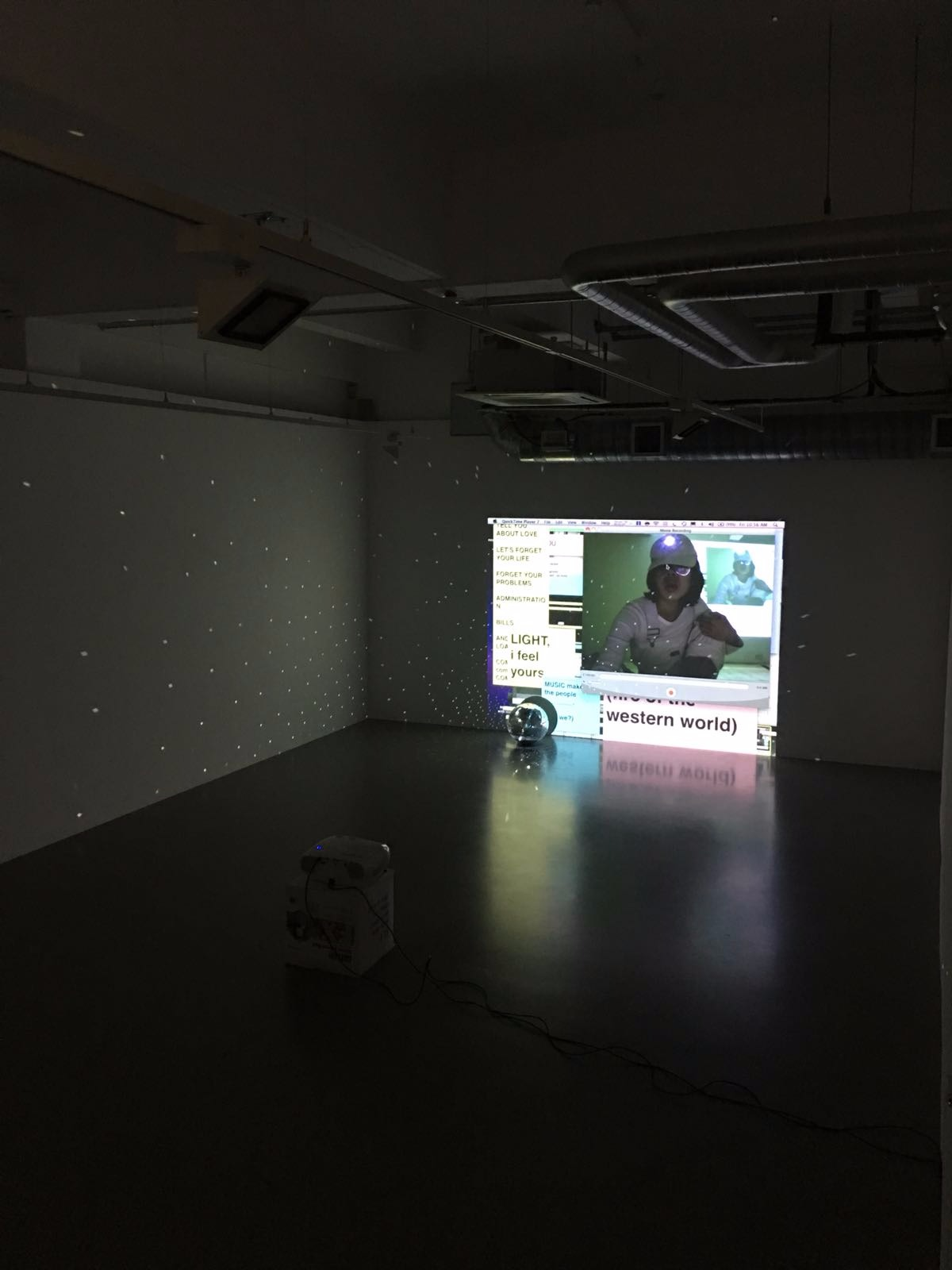
Trisha Baga (Venice, Florida, 1985) works and lives in New York.
Trisha Baga obtained her BFA at Cooper Union School of Art in 2007 and her MFA at Milton Avery Graduate School of the Arts at Bard College in 2010, both in New York City. Her practice mainly involves video and performance work through a multi-disciplinary approach, which engages the formal languages and concerns of sculpture, painting, cinema, music, photography, comedy, and fiction. Baga’s installations often include a film comprised of montaged and collaged found footage and photographs, layered in such a way that some images obscure others; the films are projected directly onto a wall, over personal items and detritus from her studio. In Madonna y El Niño (2011) a disco ball throws shimmering lights across the room as Pop singer Madonna leaps and stumbles across the stage and Baga observes herself through PhotoBooth on a projected image of her screen.
SADIE COLES | KATIE HECK
hosting KOPPE ASTNER | JOSH FAUGHT and KRIS LEMSALU
and MADRAGOA| RODRIGO HERNÁNDEZ, RENATO LEOTTA, GONÇALO PRETO, BUHLEBEZWE SIWANI and BELÉN URIE
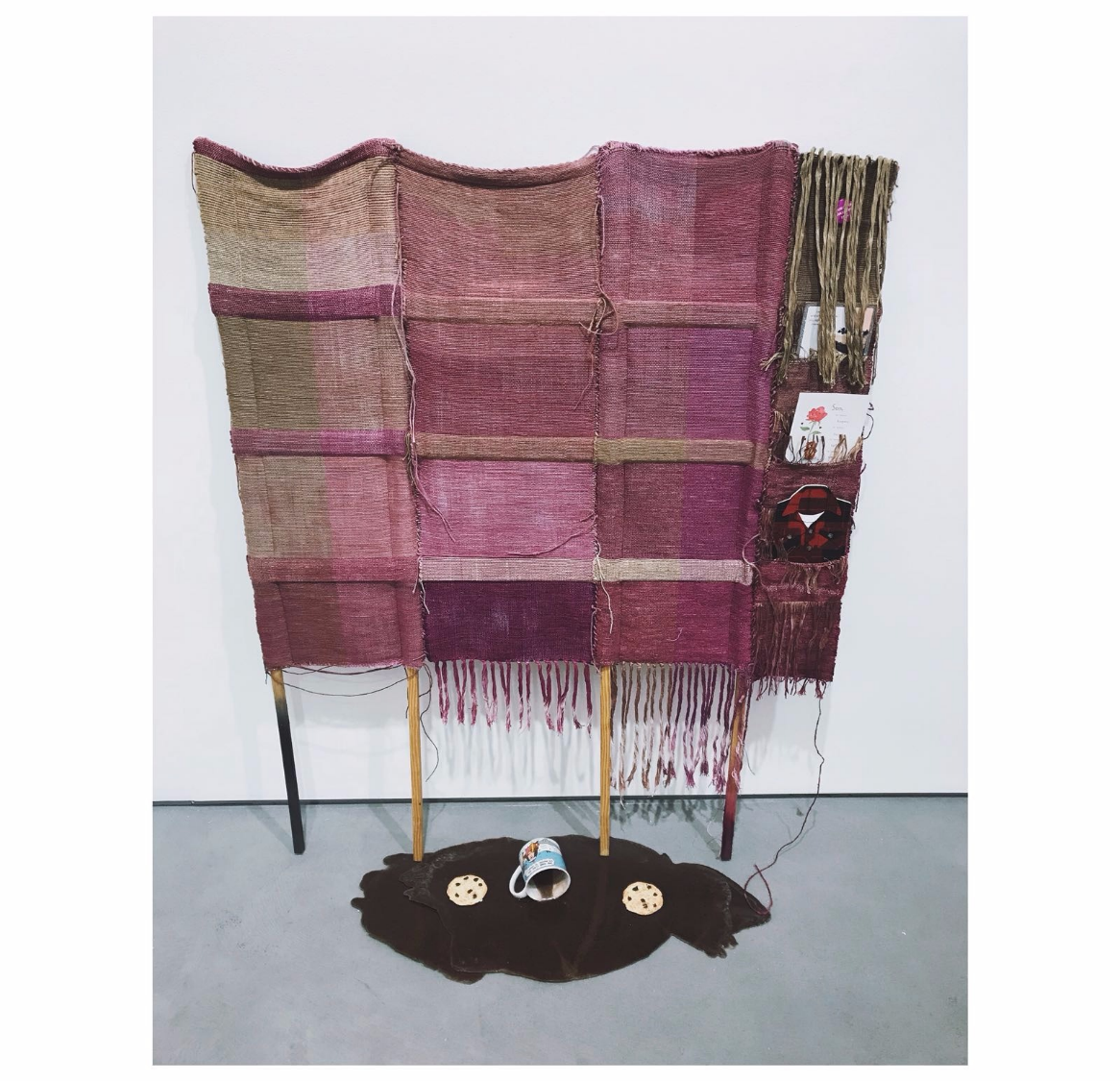
Josh Faught (Saint Louis, Missouri, USA, 1979) lives and works in San Francisco, California.
Josh Faught is a fibre sculptor and multimedia installations artist, working through different textile techniques such as crochet, knitting and weaving. Graduated from Oberlin College in 2011, he earned a AAS in Textile and Surface Design in 2004 and an MFA in Fiber and Material Studies from the School of the Art Institute of Chicago in 2006. Combining fabric, objects and ornamentation materials in large-sized installations, Faught’s works address socio-political, sexual difference and queer themes, considering how objects perform in both functional and narrative ways through text and textiles, and suggesting stories around pensive decoration and displaced social codes.
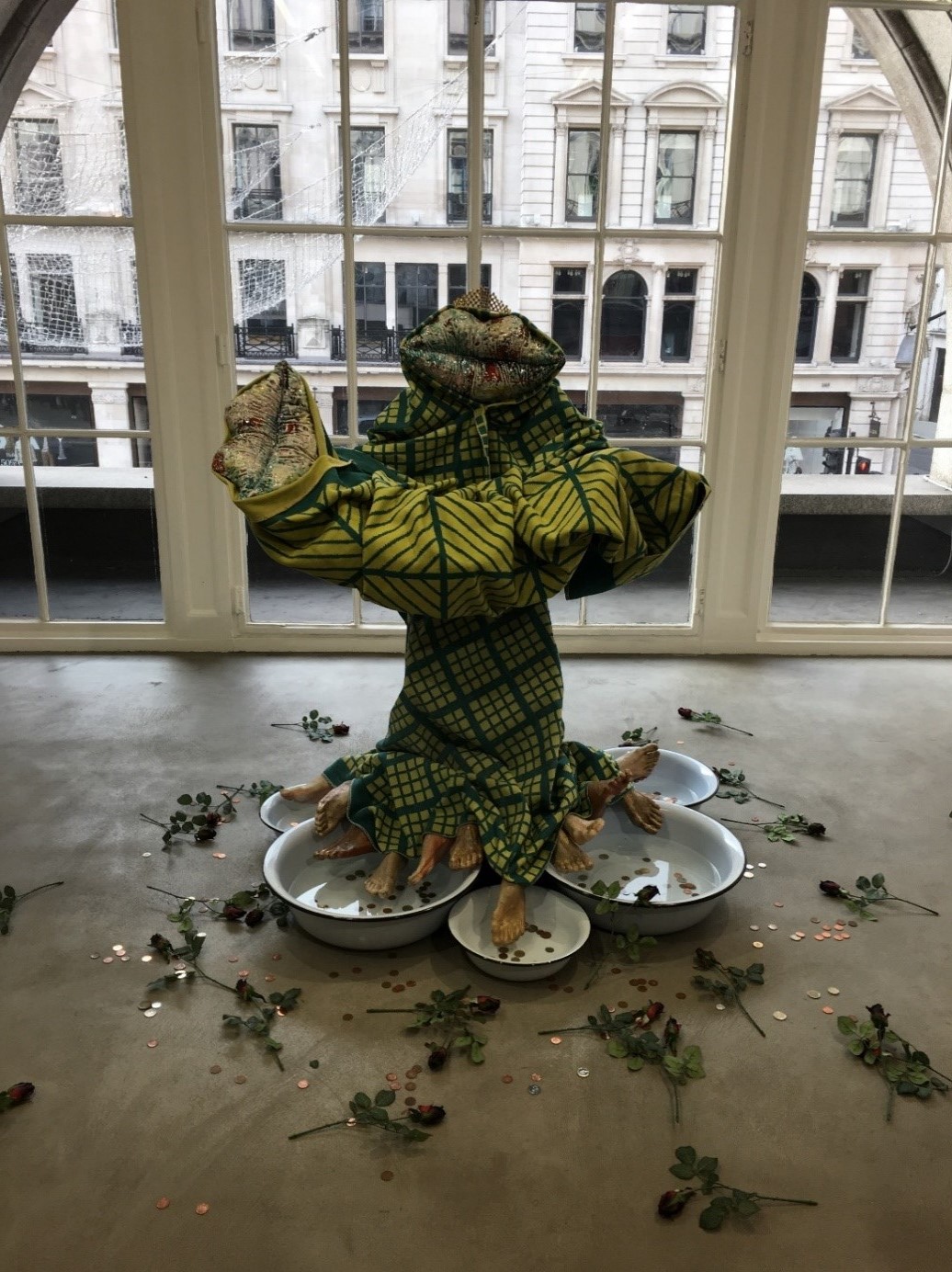
Kris Lemsalu (Tallin, Estonia, 1985) lives and works in Tallin and Vienna.
She has studied Ceramics at the Estonian Academy of Arts in Tallinn, Danmarks Designskole in Copenhagen, and at the Academy of Fine Arts in Vienna. Experimenting with traditional ceramic techniques, she creates installations combining porcelains with animal body parts or found natural materials, such as fur, leather, wool. In between fragile and luxurious, Lemsalu’s unique visual language is at once seductive, repulsive and socially critical. Becoming parts of her costumes during her performances, or conceived as narrative stage installations, Lemsalu’s works reveal her personal sense of irony and the absurd, playfully disrupting and re-establishing everyday life.
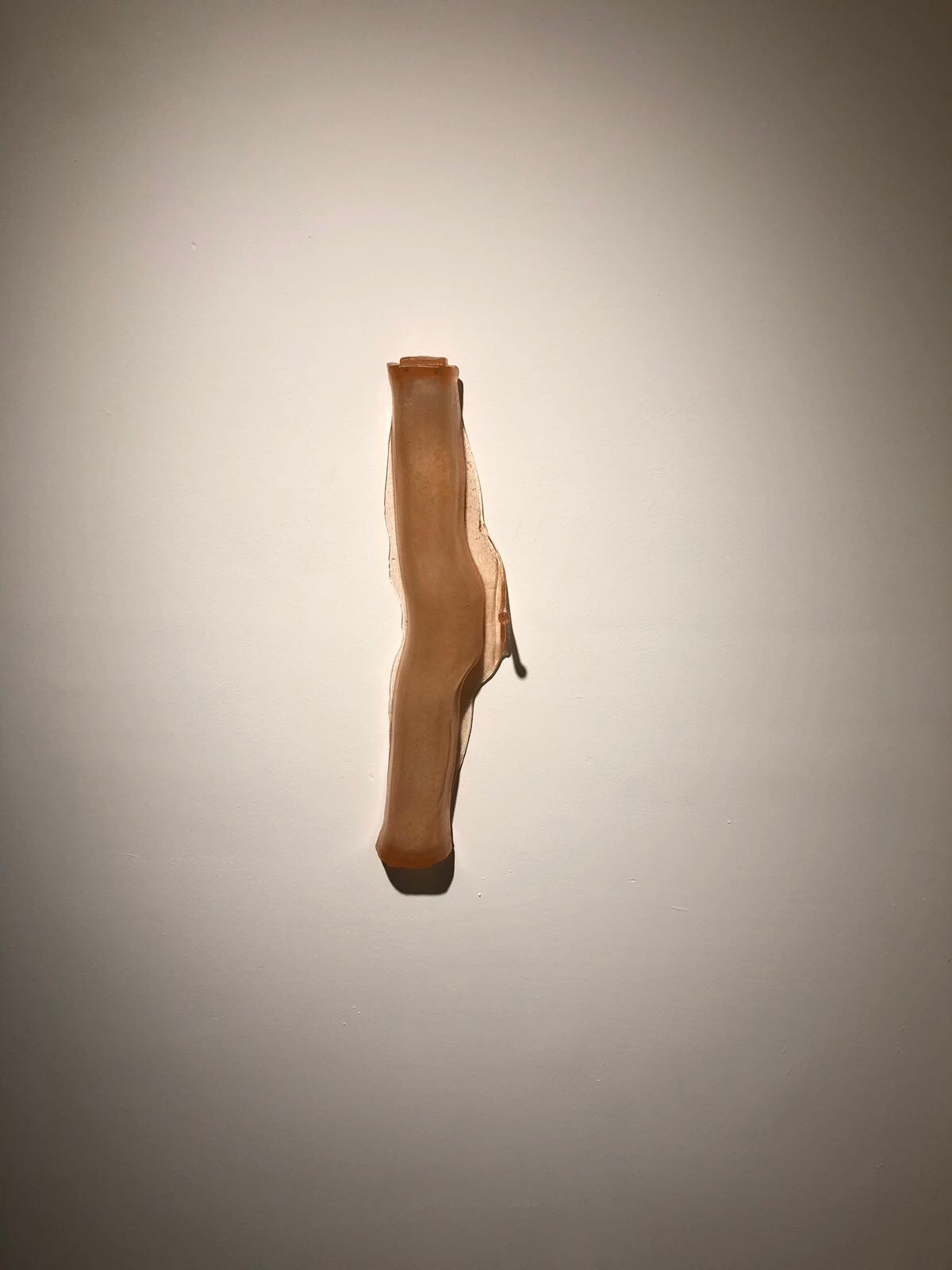
Belén Uriel (Madrid, Spain, 1974) lives and works between Lisbon and London.
The glass sculpture Untitled (braço) (2017) by Belén Uriel comes from the recent project Descanso, in which the artist focussed on some constituent elements of furniture shaped to accommodate the human body and that, through their forms and curves, maintain a strong relationship with the body. The actual armrest served as a cast for the glass sculpture, which faithfully reproduces the object’s shape, including the traces of its use and imperfections due to wear and consumption. An isolated element, detached from its usual context and function of physical support to the body, the armrest is converted into a fragile, transparent item which in turn needs a support.
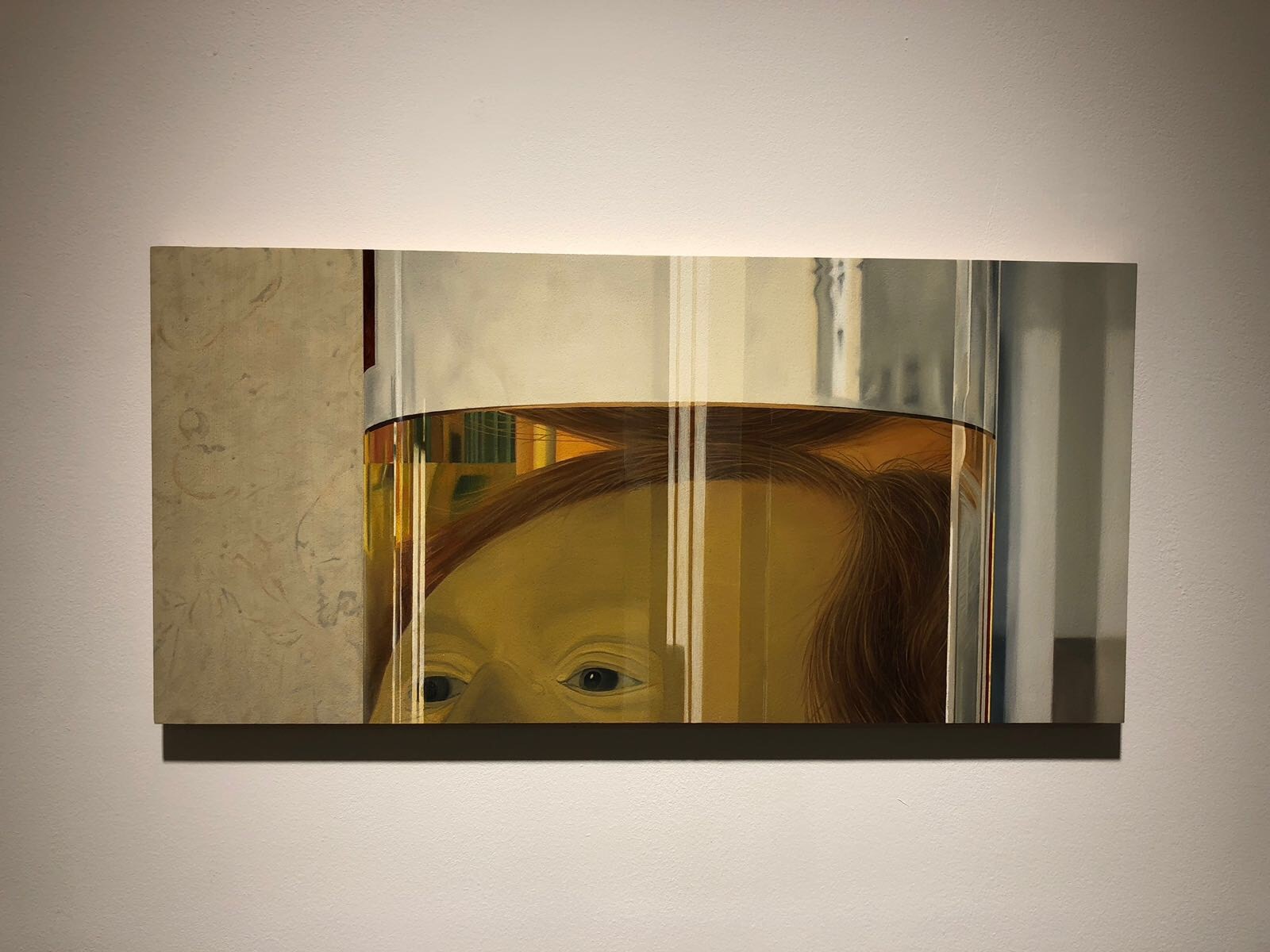
Gonçalo Preto (Lisbon, Portugal, 1991) lives and works in Lisbon.
Gonçalo Preto’s background in traditional painting techniques led him to experiment through interventions on the support – paper, board or canvas – by applying various layers of gesso and glue, or scraping the surface in order to obtain verisimilitude effects with the real subject. In the painting Peek-a-boo (2017) showing the image of a head in a glass jar dipped in formalin, several types of visual effects coexist, like a superimposition of layers or filters. Every different material represented – the wall in the background, the translucent and curved surface of the jar, the light reflected on the glass, the density of the fluid, the mirrored image of the room – become a device for a more vivid and comprehensive view of reality.
RODEO | IAN LAW
hosting ANDREW KREPS, New York | ROBERT OVERBY
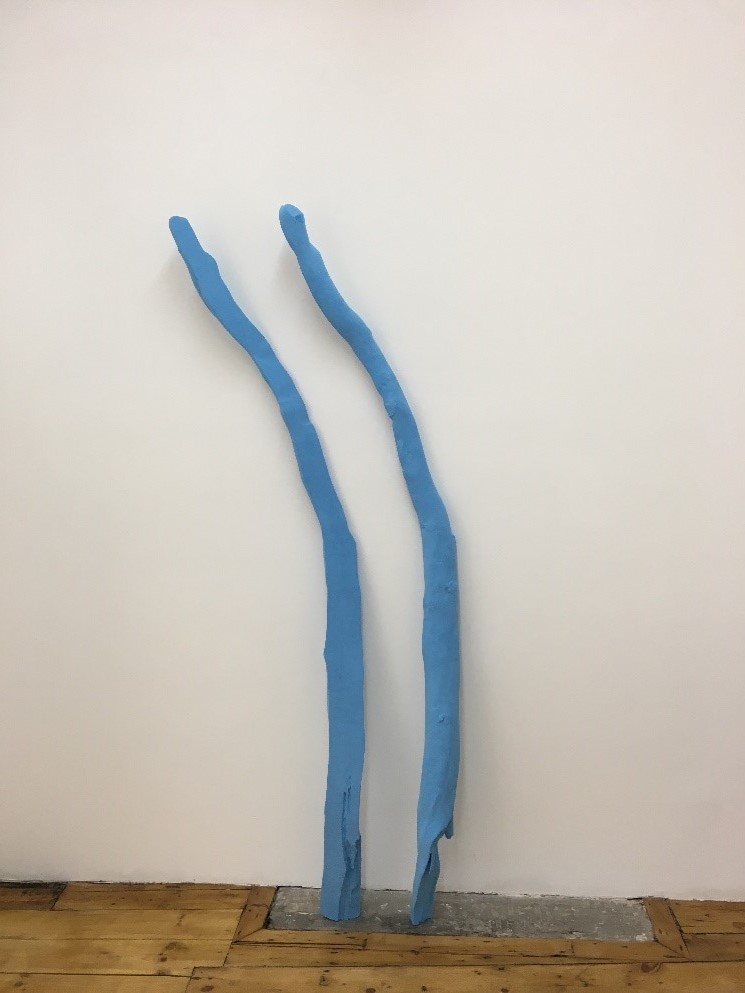
Ian Law (Isle of Weight, UK, 1984) lives and works in London.
Ian Law has developed incisive strategies of interaction, concerning both the features of the environment he finds himself working in and the processes leading to it. Through traditional modes of production, Law reflects upon the transient status of an art object as it passes from studio to exhibition space and back again, and lays claim to how materials might accrue a certain process-based autonomy. Enquiring into alternative means of mark-making that affect both artwork and support, his practice deals with residual traces of materials towards a quasi- functionality of wall, ground and work.
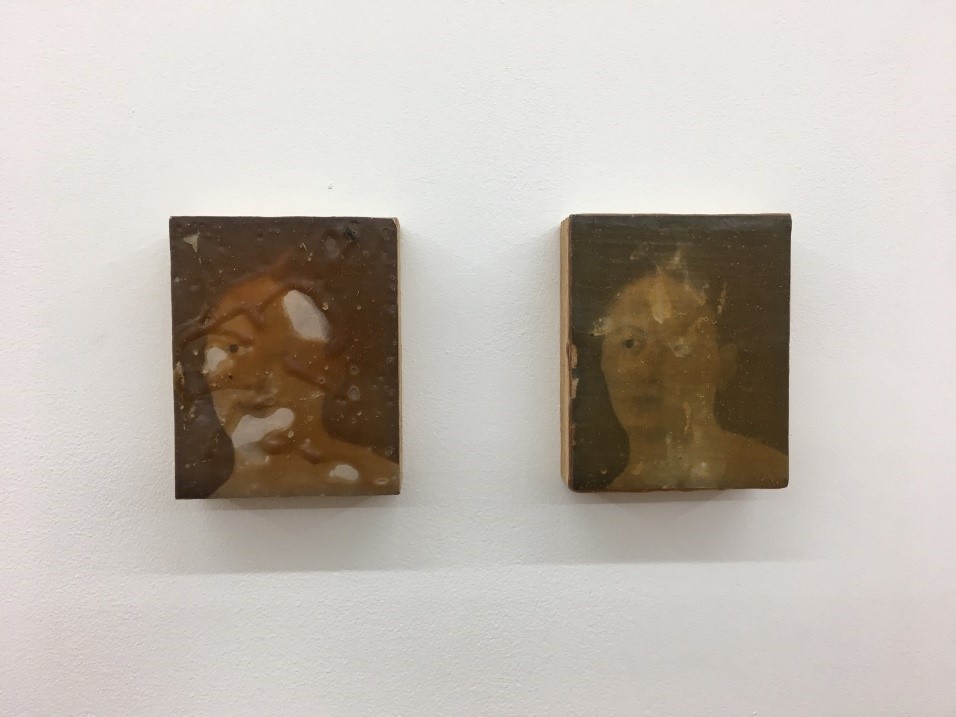
Robert Overby (Harvey, 1935 – Los Angeles, 1993). Despite his extremely prolific and diversified production, Robert Overby remains one of the best-kept secrets of Post-War American Art since he rarely exhibited in his lifetime. His works – including sculptures, installations, paintings, prints and collages – offer a mysterious and inspiring exploration of representation, space and identity. A poetic investigation of the human condition and its decay, its beauty, and its absurdity.
CORVI MORA and GREENGRASSI | JOHN LINDELL, IMRAN QURESHI and TATSUO IKEDA
hosting LOMEX and JTT, New York | KYE CHRISTENSEN-KNOWLES and SABLE ELYSE SMITH
and PROYECTOS ULTRAVIOLETA, Guatemala City | NAUFUS RAMÌREZ-FIGUEROA
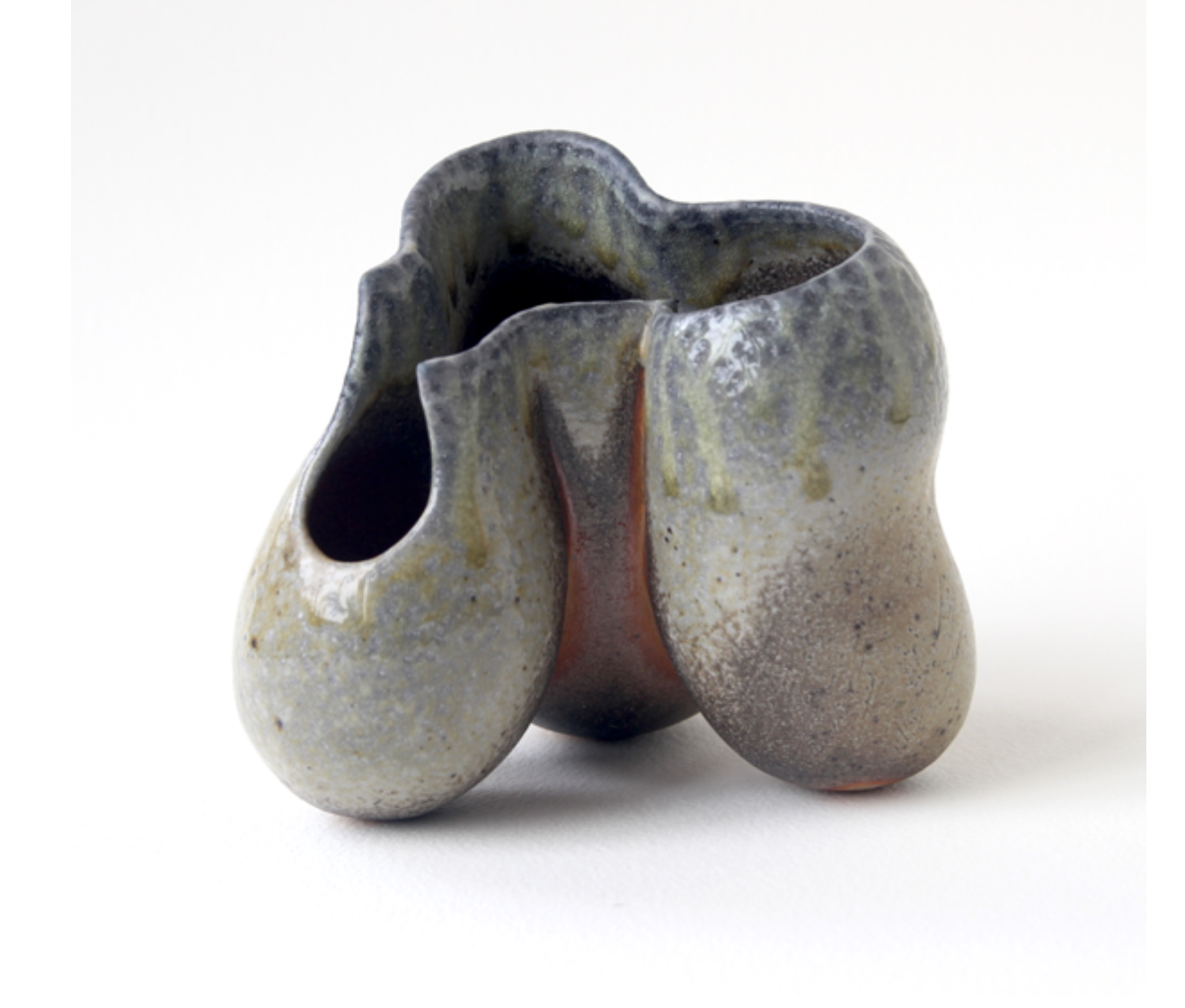
John Lindell (Pasadena, California, 1956) lives and works in New York.
John Lindell has been exhibiting since the late Eighties and was one of the founding members of influential collective Gran Fury. Over the years, his work has been included in many seminal exhibitions, from the first Aperto at the Venice Biennale (1993) to The Winter Of Love at PS1 NY (1994) to Agitprop at the Brooklyn Museum in 2016. His recent work – wood-fired ceramic sculptures fired in an anagama kiln in upstate New York – reconnects to his work from the early nineties, where geometric forms were used to symbolise various parts of the male body, creating depictions of sex scenes masquerading as neo-geo abstraction.
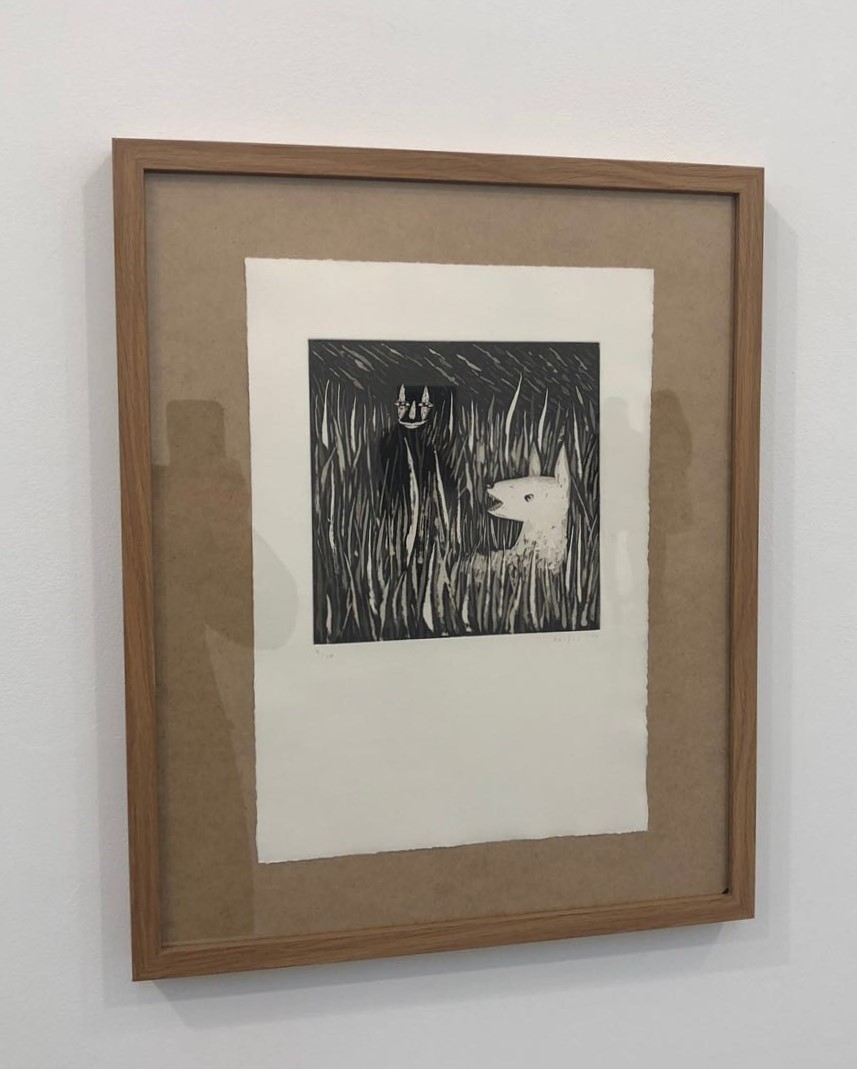
Naufus Ramírez-Figueroa (Guatemala City, 1978).
Ramírez-Figueroa received a BFA in Media Arts from Emily Carr Institute of Art and Design, Vancouver, in 2006, and an MFA from the School of the Art Institute of Chicago in 2008. Exploring drawing, sculpture and performance, Ramírez-Figueroa investigates the entanglement of history and form through the lens of his own displacement during and following Guatemala’s civil war of 1960–96, an action of political resistance made explicit by the series El corazón de espantapajoros (Heart of the Scarecrow) (2015).
THE SUNDAY PAINTER and ARCADIA MISSA | LEO FITZMAURICE and CHEYENNE JULIEN
hosting DAWID RADZISZEWSKI, Warsaw | ALICJA KOWALSKA and TOMASZ KOWALSKI
and STEREO, Warsaw | GIZELA MICKIEWICZ and ROMAN STANCZAK
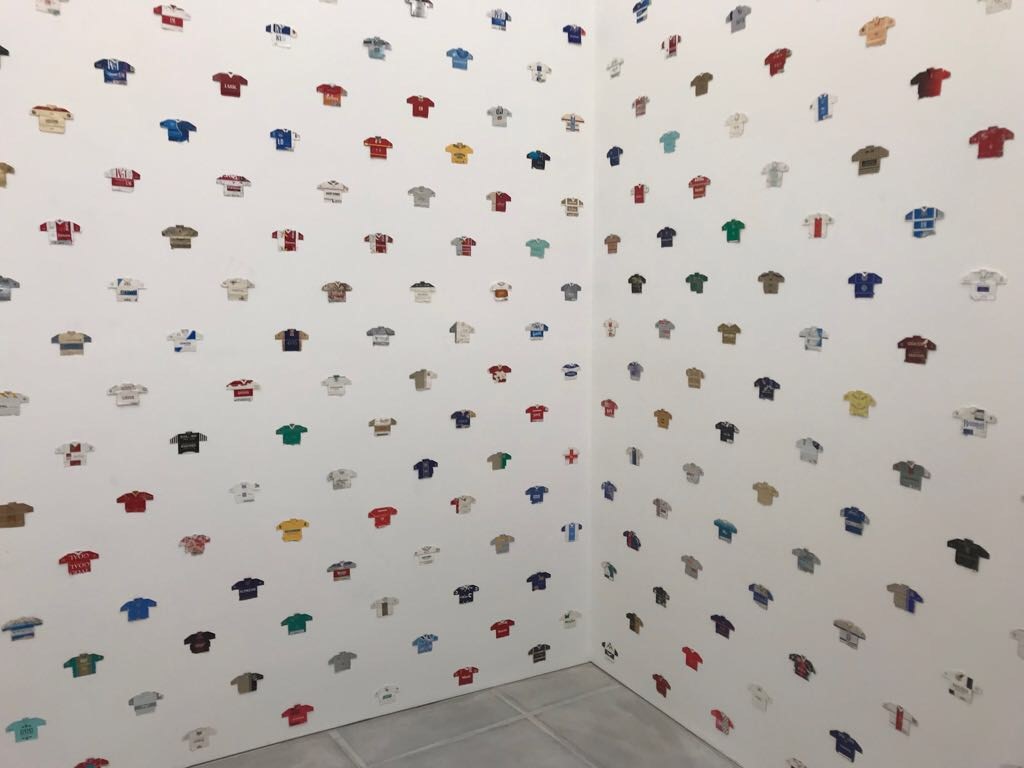
Leo Fitzmaurice (Shropshire, UK, 1963) lives and works in Liverpool. He studied painting at Leicester Polytechnic, Liverpool Polytechnic and Manchester Metropolitan University, graduating in 1992. Even though Leo Fitzmaurice originally trained as a painter, upon completion of his fine arts education he shifted his focus to found materials. He focuses on the physical manifestations of banal materials within the environment, combining packaging, brochures, magazines, flyers, and road signage in new contexts. His interest is focused on re-contextualising this type of design whilst removing its original function and message, rearranging it in unexpected ways without imposing a new specific meaning. Cigarette boxes, for instance, are repurposed into tiny sculptures and graphic installations are comprised of advertising fliers. Fitzmaurice presents such imaginatively revised everyday items within both the traditional exhibition context as well as in non-gallery situations. Among the various unconventional locales in which he has staged art interventions—he works closely and collaboratively with fellow artists—was a disused mental asylum.
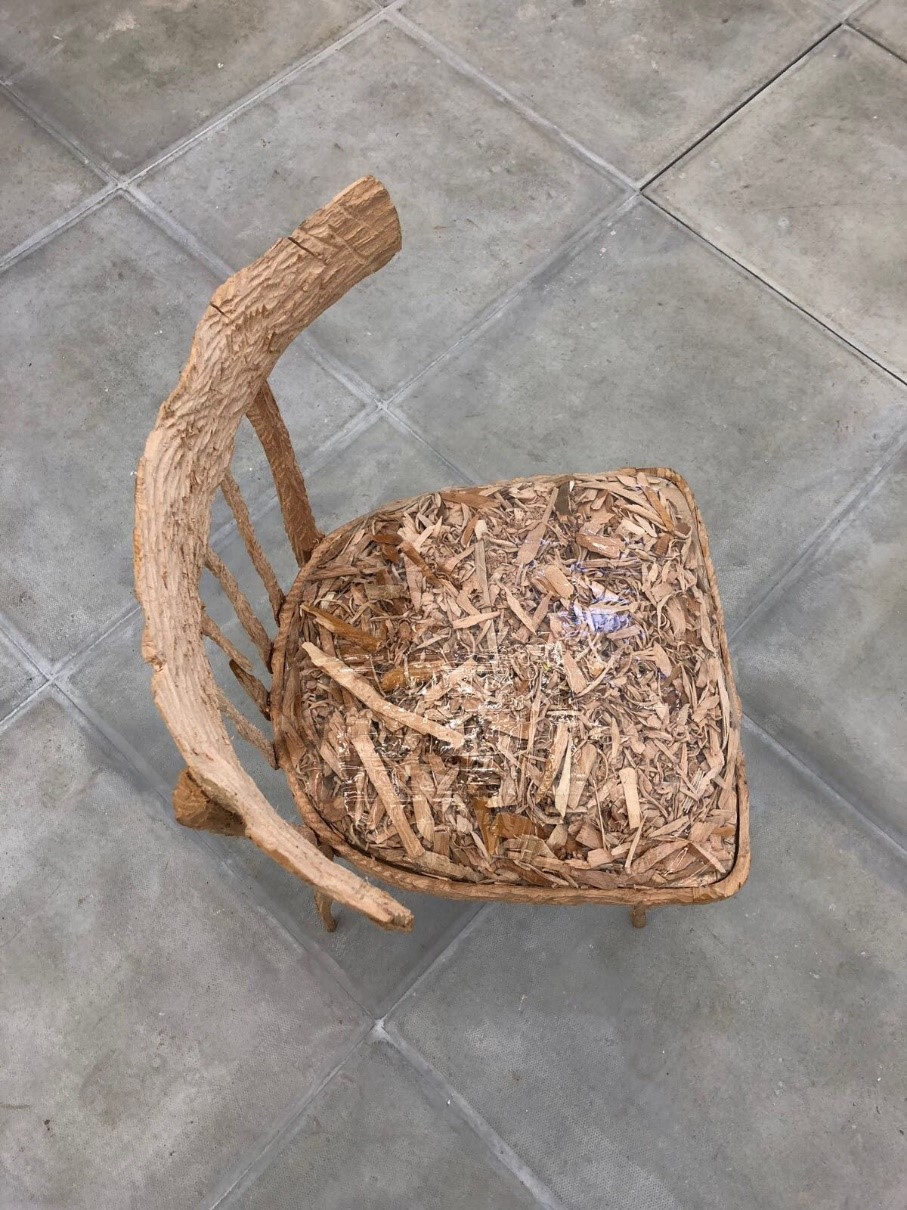
Roman Stańczak (Szczecin, Poland, 1969) lives and works in Warsaw.
After his studies at the Faculty of Sculpture at the Academy of Fine Arts in Warsaw, debuted in the art scene in the beginning of the 1990s. Taking art to the phenomenon of Polish ‘critical art’, his practice focuses on depriving pieces of furniture of their everyday – functional and aesthetic – functions by transforming it sculpturally, spatially and colouristically, giving them a new formal and semantic value.
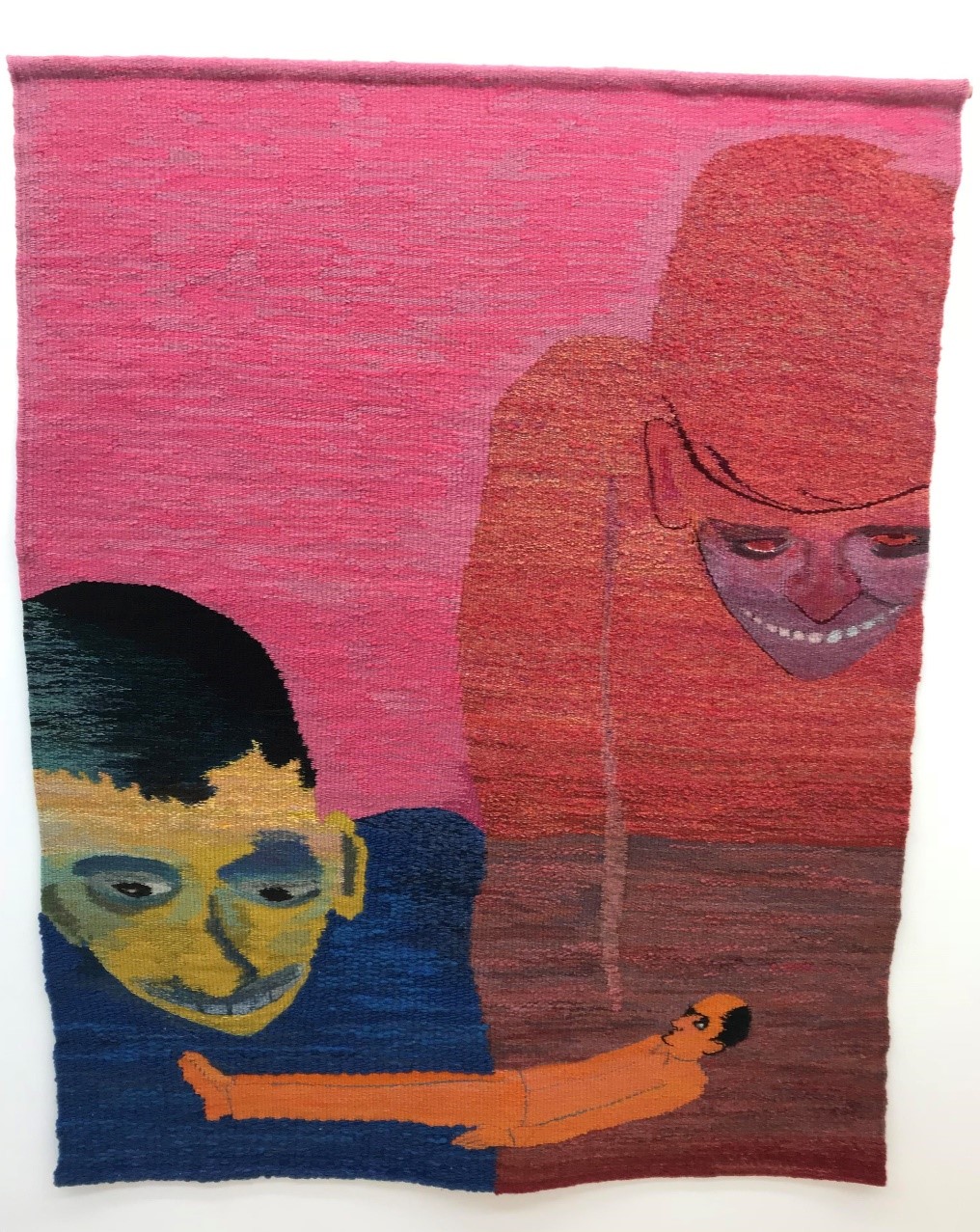
Polish artists Alicja Kowalska and Tomasz Kowalski are mother and son, working together combining her tapestry practice with his design, surrealist aesthetics, and oneiric poetics. Tomasz (Szczebrzeszyn, Poland, 1984) graduated from the Academy of Fine Arts in Krakow in 2009 and he is one of the most relevant artists of the young generation. His indebtedness to Expressionism can be seen in his imaginative use of colour and in the distortion and semi-abstractedness of the human and animal figures and domestic objects that populate his compositions. He is also inspired by Surrealism, as evidenced by the illogic and emotion that seem to govern his scenes.
PROJECT NATIVE INFORMANT |NED VENA
hosting MADEIN GALLERY, Shanghai | SHEN XIN
and KOW, Berlin | TOBIAS ZIELONY
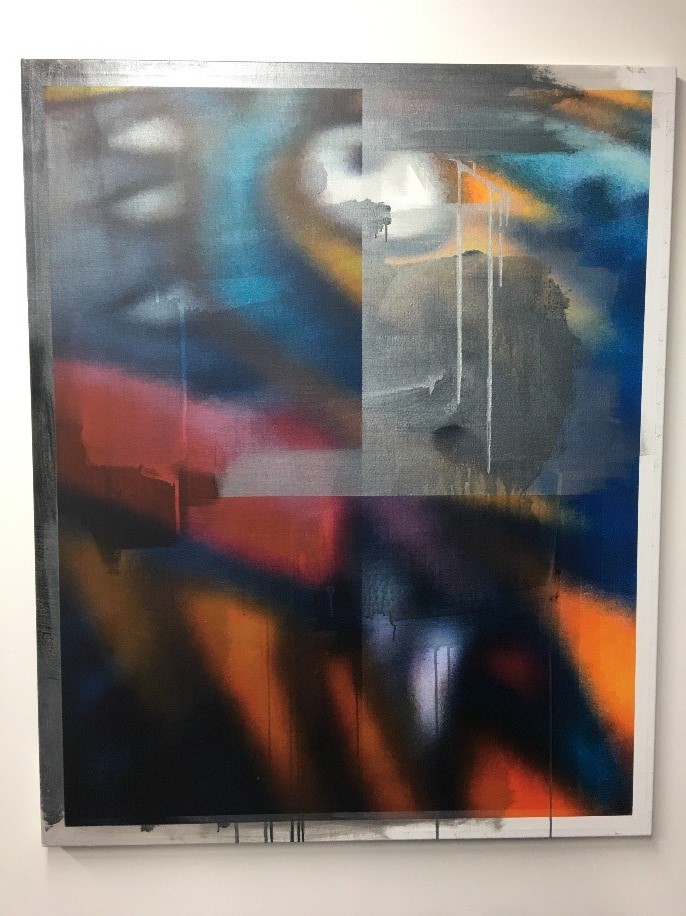
Ned Vena (Boston, Massachusetts, USA, 1982) lives and works in Brooklyn, New York.
Merging digital technology, industrial production, graffiti, and the handmade, Ned Vena makes paintings, sculptures, installations, and films through which he explores and, ultimately, upends notions of form, process, and concept in art making. Drawing inspiration from Minimalism, Op and Pop Art, and Frank Stella’s Black Paintings, he creates compositions out of an assortment of non-fine art materials—including vinyl, spray rubber, security glass, and commercial ink—which he covers with V-shaped, gridded lines, intentionally marred with a variety of surface imperfections. Vena begins on the computer, working out his angular grids, which he then transfers to canvases with vinyl stencils. He has also affixed these stencils directly onto gallery walls and other surfaces, blurring the boundaries between art and the everyday, and the unique object and mass production.
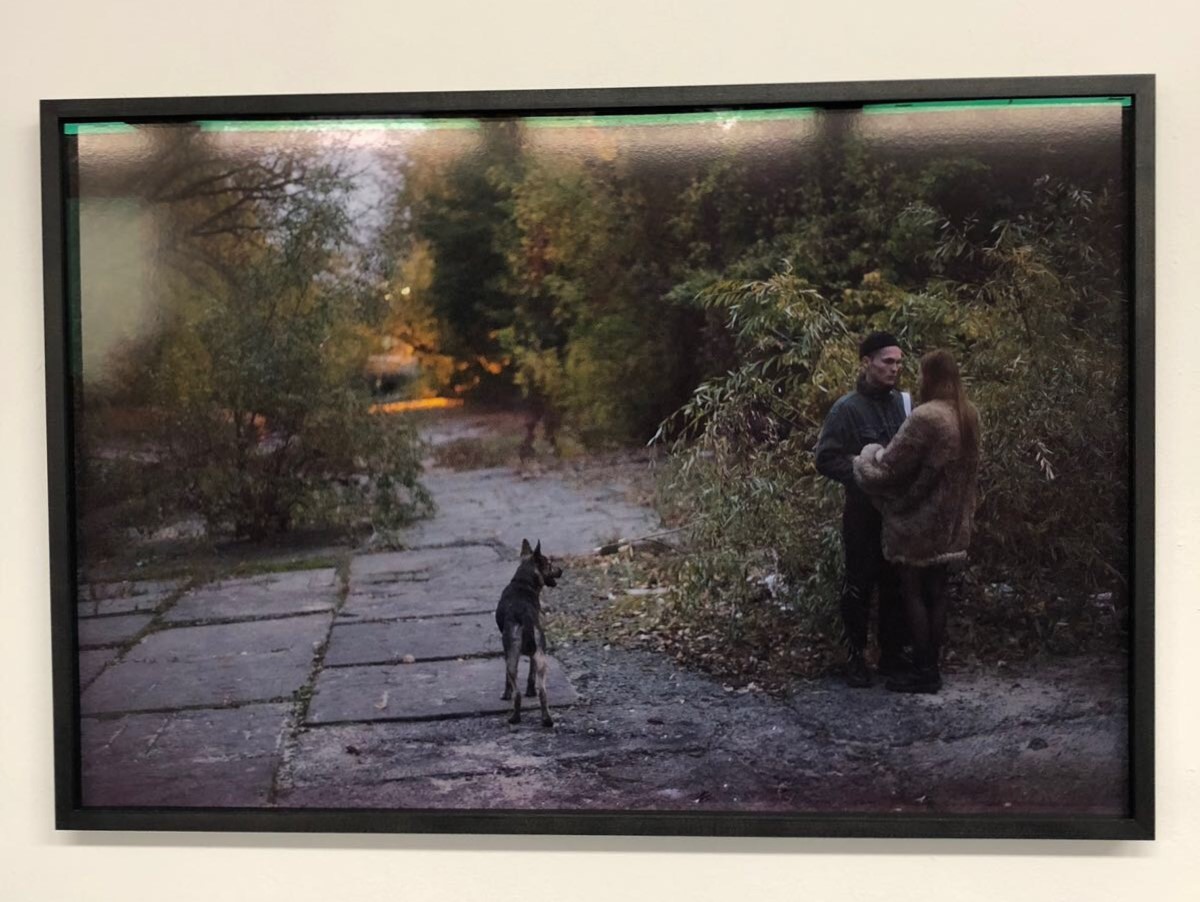
Tobias Zielony (Wuppertal, Germany, 1973) lives and works in Berlin.
Tobias Zielony is known for his photographic depiction of juvenile minorities in suburban areas – a subject he already set out with during his studies in Newport. For his first book project Behind the Block (2004) he then extended his research to a total of four European cities to observe adolescents in public spaces often during night times. Themes and social realities his research touches upon include structural change, migration and drug abuse, as well as sex-work as shown in Big Sexyland (2006-2008) and Jenny, Jenny (2013). For Manitoba (2009-2011) Tobias Zielony spent time with adolescents of indigenous origins living in Winnipeg and the province of Manitoba, Canada. His critical approach to documentarism manifests in a specific aesthetic and relationship with fiction.
EMALIN | ALVARO BARRINGTON
hosting WEISS FALK, Basel | TERESA FARRELL, CRISTINE BRACHE and DAVID WEISS
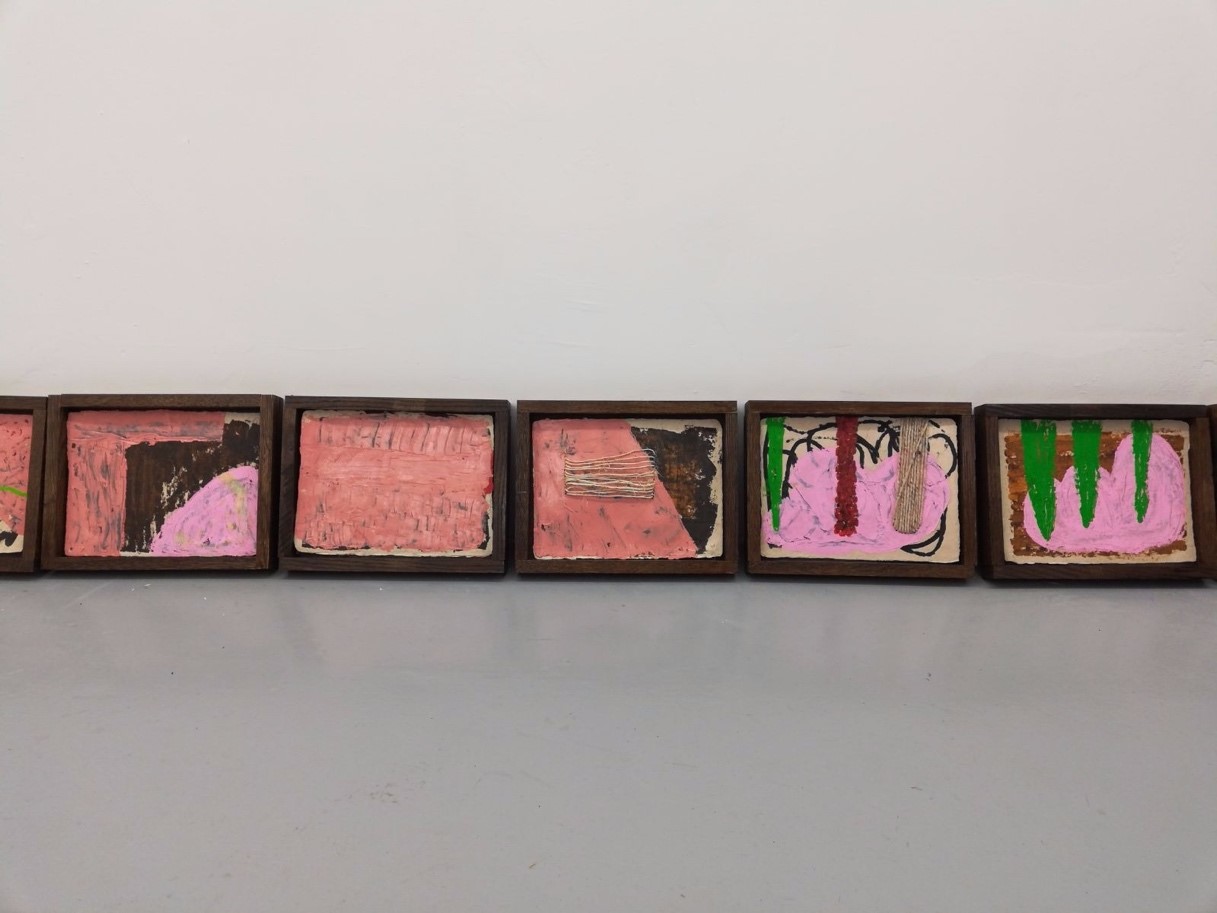
Alvaro Barrington (Caracas, Venezuela, 1983).
Barrington’s multimedia work combines materials including textiles, painting, mixed media, drawing, photography, and print. Born in Venezuela to Grenadian and Haitian migrant workers, and raised between the Caribbean and Brooklyn, Barrington began to sew as a way to connect with his Grenadian aunts who were masterful tailors. Barrington has explored the formal action of sewing yarn as an entry into this long tradition of a gendered textile art practice, which was documented orally and passed down by the women in his family. His intimate compositions focus on single subjects in close-up, including faces, body parts, and tropical vegetation. Flamboyant tree and hibiscus flowers, in particular, have become personal motifs for the artist. Barrington often amends used postcards collected while traveling with sewed interventions that fundamentally alter these landscapes, asserting an alternate narrative to those contained within found images.
CARLOS ISHIKAWA | RICHARD SIDES
hosting QUEER THOUGHTS, New York | QUINTESSA MATRANGA
and SHIEFE ZAHNE, Berlin | LUKAS QUIETZSCH
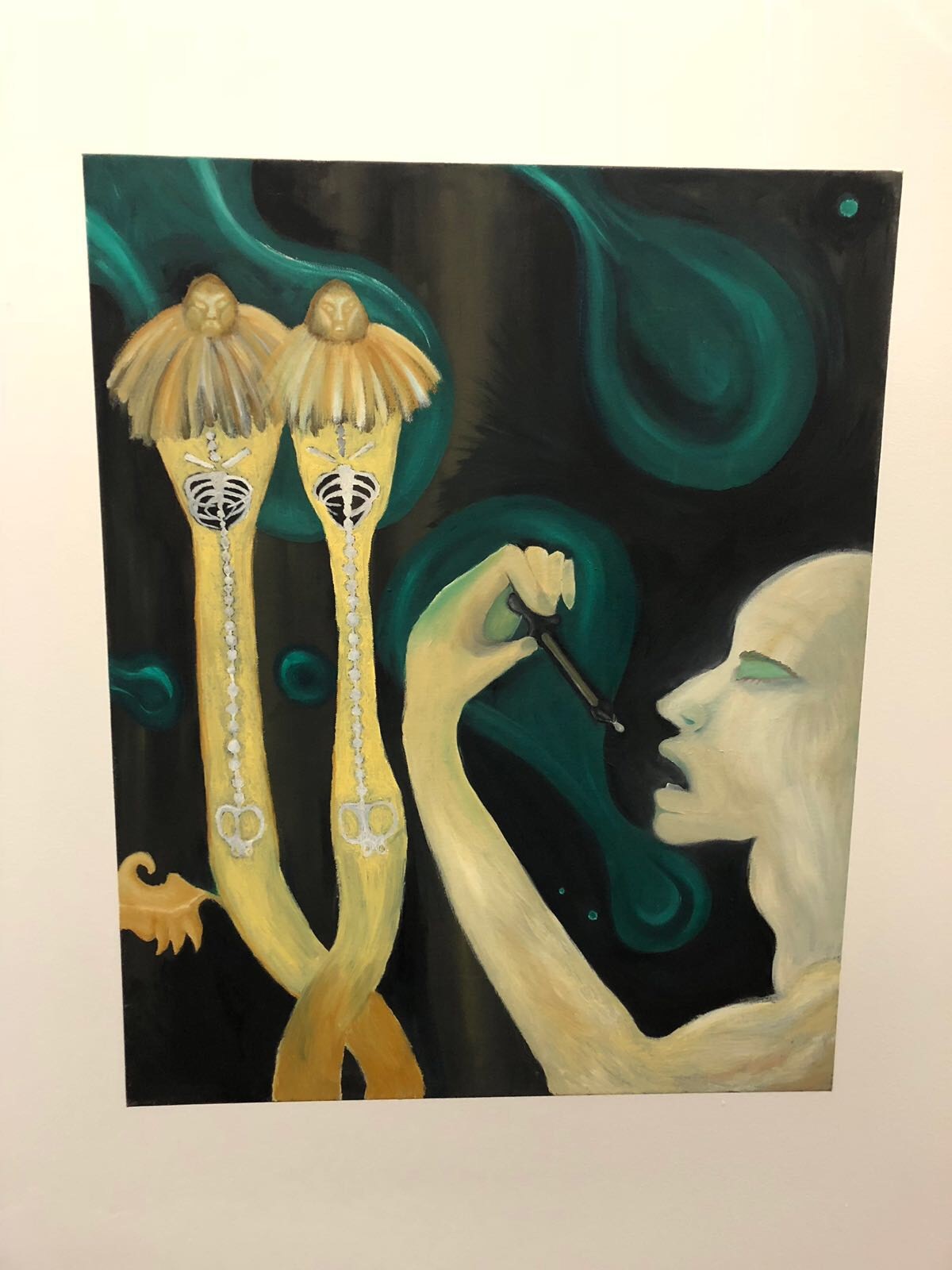
Quintessa Matranga (New York, USA, 1989) lives and works in Brooklyn, New York City. With a BFA from San Francisco Art Institute, the American artist elaborates a form of domestic Surrealism in which decidedly mundane elements take on an existential significance, focussing predominately on painting and drawing, usually with a quick, gestural approach and soft colour palette. Drawing on vernacular modes of expression—such as street wear, comic books, childhood fairy tales and cartoons—which are deployed in a reliably warped, bastardized manner, her work hovers between providing a key to understand our current cultural moment, and radically unhinging it.
